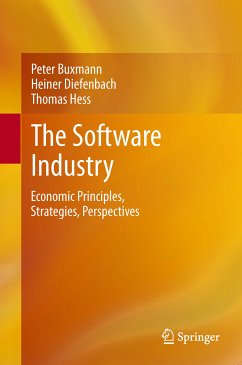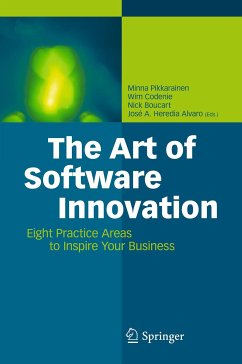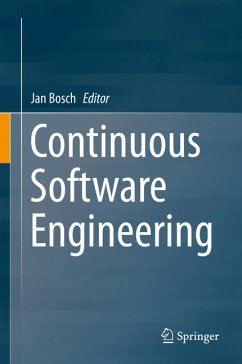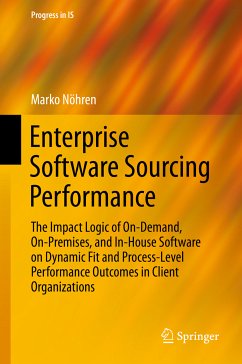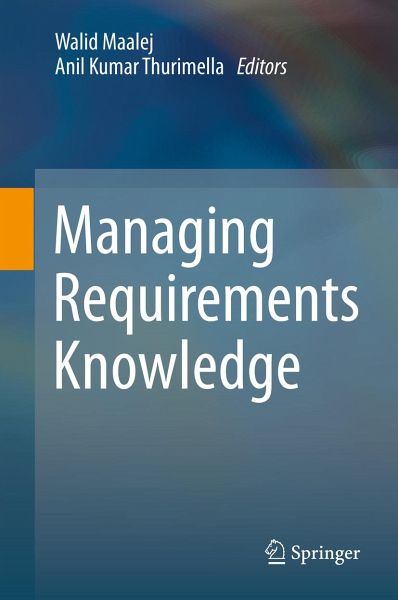
Managing Requirements Knowledge (eBook, PDF)
Versandkostenfrei!
Sofort per Download lieferbar
72,95 €
inkl. MwSt.
Weitere Ausgaben:

PAYBACK Punkte
36 °P sammeln!
Requirements engineering is one of the most complex and at the same time most crucial aspects of software engineering. It typically involves different stakeholders with different backgrounds. Constant changes in both the problem and the solution domain make the work of the stakeholders extremely dynamic. New problems are discovered, additional information is needed, alternative solutions are proposed, several options are evaluated, and new hands-on experience is gained on a daily basis. The knowledge needed to define and implement requirements is immense, often interdisciplinary and constantly...
Requirements engineering is one of the most complex and at the same time most crucial aspects of software engineering. It typically involves different stakeholders with different backgrounds. Constant changes in both the problem and the solution domain make the work of the stakeholders extremely dynamic. New problems are discovered, additional information is needed, alternative solutions are proposed, several options are evaluated, and new hands-on experience is gained on a daily basis. The knowledge needed to define and implement requirements is immense, often interdisciplinary and constantly expanding. It typically includes engineering, management and collaboration information, as well as psychological aspects and best practices. This book discusses systematic means for managing requirements knowledge and its owners as valuable assets. It focuses on potentials and benefits of "lightweight," modern knowledge technologies such as semantic Wikis, machine learning, and recommender systems applied to requirements engineering. The 17 chapters are authored by some of the most renowned researchers in the field, distilling the discussions held over the last five years at the MARK workshop series. They present novel ideas, emerging methodologies, frameworks, tools and key industrial experience in capturing, representing, sharing, and reusing knowledge in requirements engineering. While the book primarily addresses researchers and graduate students, practitioners will also benefit from the reports and approaches presented in this comprehensive work.
Dieser Download kann aus rechtlichen Gründen nur mit Rechnungsadresse in A, B, BG, CY, CZ, D, DK, EW, E, FIN, F, GR, HR, H, IRL, I, LT, L, LR, M, NL, PL, P, R, S, SLO, SK ausgeliefert werden.





